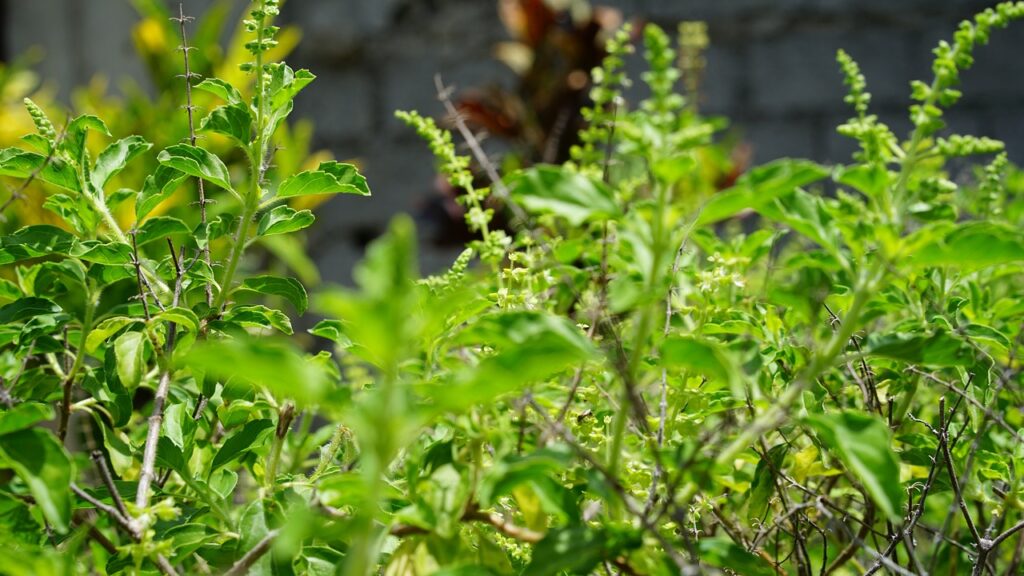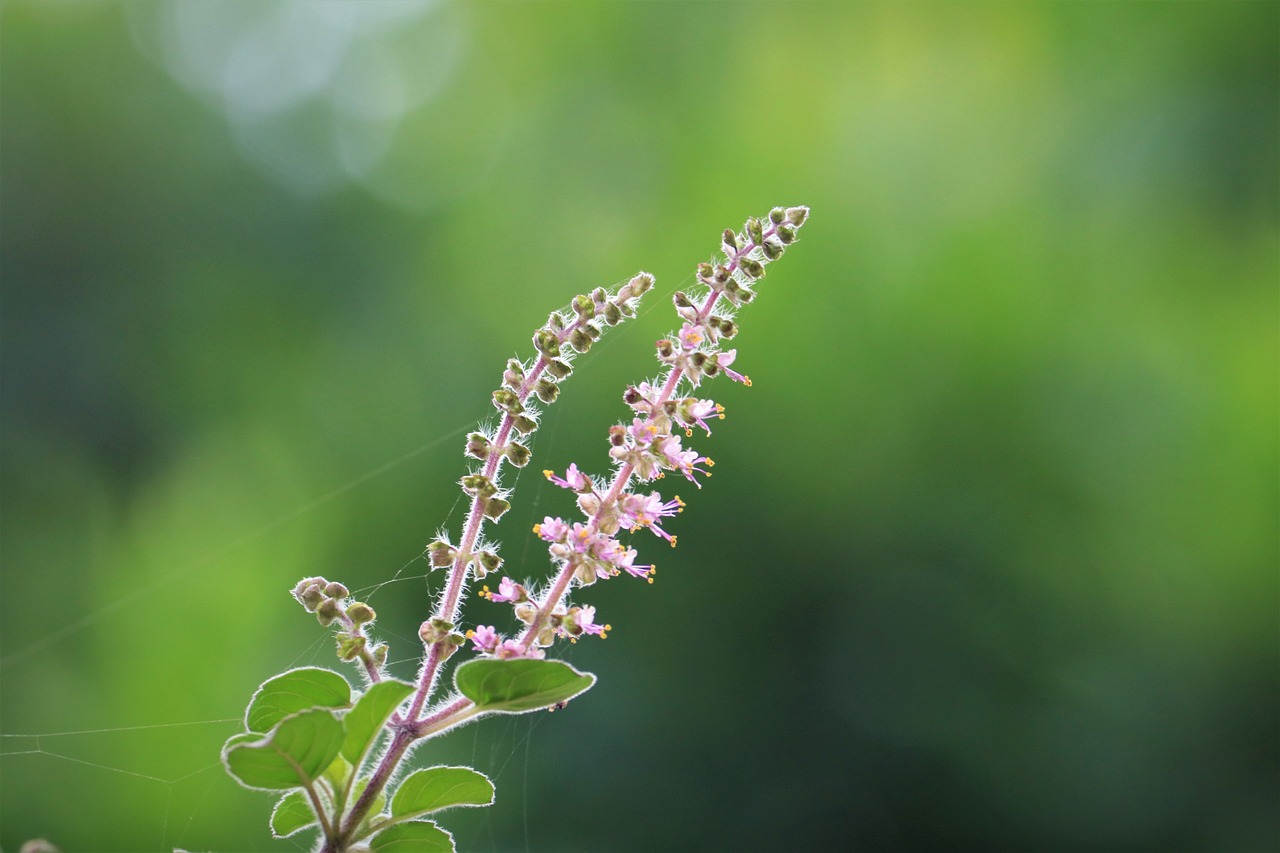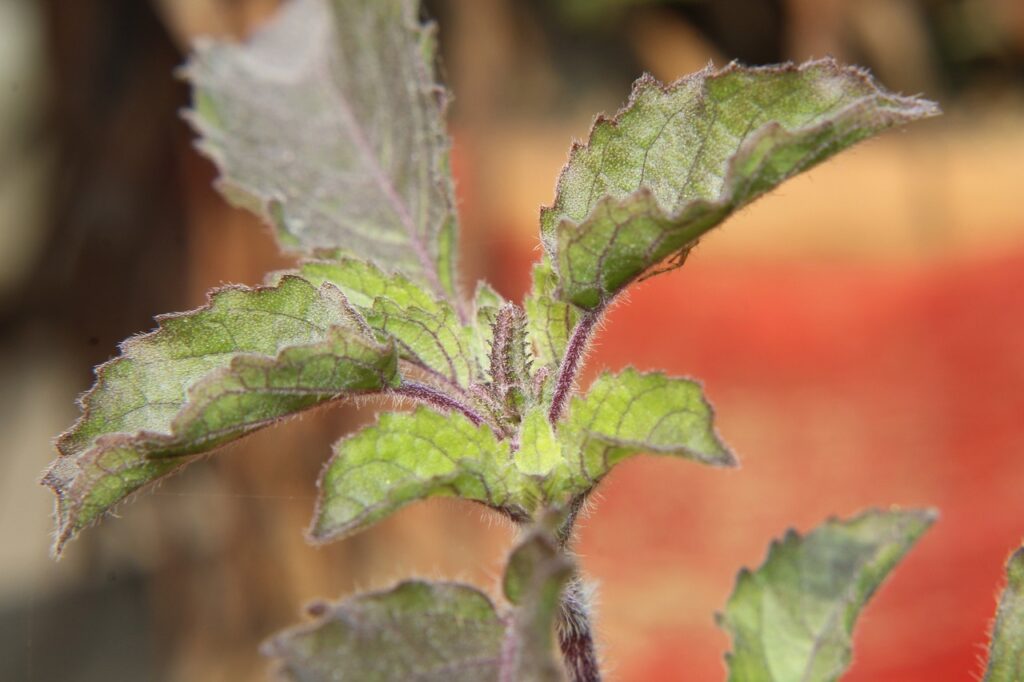The tulsi plant, known as holy basil (Ocimum sanctum), is a revered herb in traditional Indian medicine and culture. It is considered sacred in Hinduism and is often grown in homes and temples. Tulsi is known for its aromatic leaves and is used in various forms, such as tea, essential oils, and herbal remedies.
It has numerous health benefits, including anti-inflammatory, antioxidant, and antimicrobial properties. Traditionally, tulsi is believed to promote overall wellness, support the immune system, and aid in stress relief. There are different varieties of tulsi, such as Rama tulsi (green) and Krishna tulsi (purple), each with its unique flavor and benefits..
There are several types of tulsi plants, each with distinct characteristics and uses. Here are some of the most common varieties:
- Rama Tulsi (Ocimum sanctum): Also known as green tulsi, this variety has green leaves and a mild flavor. It’s commonly used in herbal teas and for its health benefits.
- Krishna Tulsi (Ocimum sanctum): Known as purple or dark tulsi, this variety has dark green to purple leaves and a stronger flavor. It is often used in traditional rituals and has a slightly different set of health benefits.
- Vana Tulsi (Ocimum gratissimum): Also known as wild tulsi, this variety has larger leaves and a more pronounced aroma. It is often found in the wild and is used for its medicinal properties.
- Kapoor Tulsi (Ocimum sanctum): This variety has a strong aroma and is often used in cooking and for its essential oil. It’s known for its potent medicinal qualities.
Each type of tulsi has unique properties and uses, making them valuable in both culinary and medicinal contexts.
The Tulsi plant offers a variety of health benefits, making it a valuable addition to traditional medicine and wellness practices. Here are some key benefits:
- Antioxidant Properties: Tulsi is abundant in antioxidants, which aid in fighting oxidative stress and safeguarding the body against free radicals.
- Anti-Inflammatory Effects: It has anti-inflammatory properties that may help reduce inflammation in the body, potentially benefiting conditions like arthritis.
- Stress Relief: Tulsi is regarded as an adaptogen, meaning it can assist the body in adapting to stress and fostering mental balance.
- Immune Support: Regular consumption of tulsi may enhance immune function, helping the body fight off infections.
- Respiratory Health: Tulsi can help soothe respiratory conditions, such as colds and asthma, due to its antimicrobial and anti-inflammatory properties.
- Digestive Health: It may aid digestion, reduce bloating, and alleviate gas, making it beneficial for overall gut health.
- Heart Health: Tulsi may help lower cholesterol levels and blood pressure, supporting cardiovascular health.
- Blood Sugar Regulation: Some studies suggest that tulsi may help regulate blood sugar levels, making it beneficial for those with diabetes.
- Skin Benefits: Its antimicrobial properties can help improve skin health and treat acne or other skin conditions.
- Oral Health: Tulsi may help combat oral bacteria, promoting better oral hygiene and fresh breath.
These benefits make tulsi a versatile herb for promoting overall well-being. However, it’s always best to consult with a healthcare provider before using it for specific health concerns.
According to Vastu Shastra, the placement of the tulsi plant is considered significant for promoting positive energy and well-being. Here are the recommended placements:

- East Direction: The east is the most auspicious direction for placing a tulsi plant. It allows the plant to receive morning sunlight, which is beneficial for its growth and enhances positive energy in the home.
- North-East Corner: This is another ideal location. Placing the tulsi plant in the north-east corner of your home or garden is believed to bring prosperity and spiritual growth.
- South-East: If space allows, the south-east direction can also be suitable, as it provides good sunlight exposure.
Placement Tips:
- Avoid North-West or South-West: It’s generally advised to avoid placing the tulsi plant in the north-west or south-west directions, as these can lead to imbalances in energy.
- Elevation: Ideally, keep the plant on a raised platform or pot rather than directly on the ground to enhance its spiritual significance.
- Accessibility: Ensure it’s in a place where it can be easily accessed for daily rituals or care.
Following these Vastu guidelines can help enhance the positive energy associated with the tulsi plant in your home.


